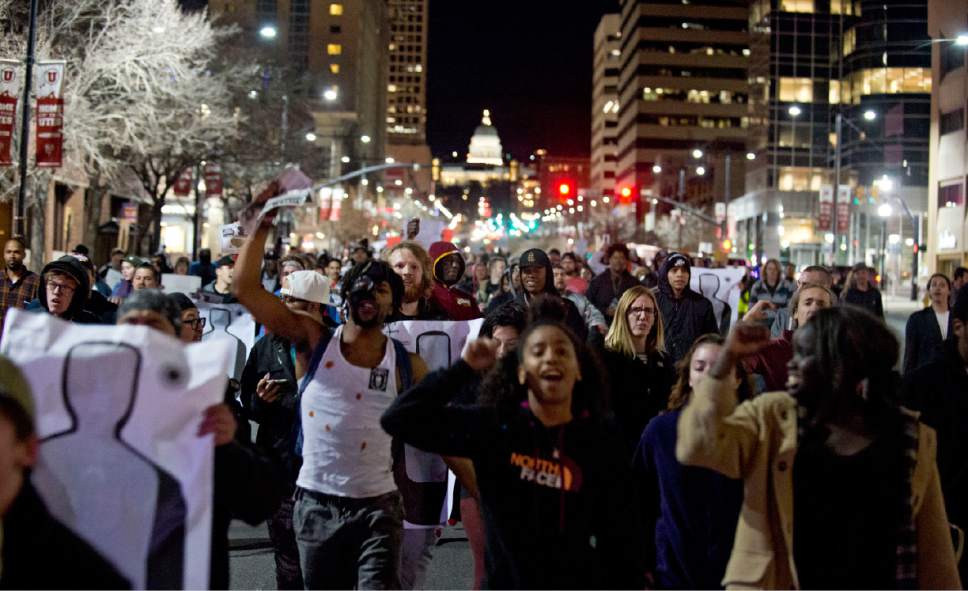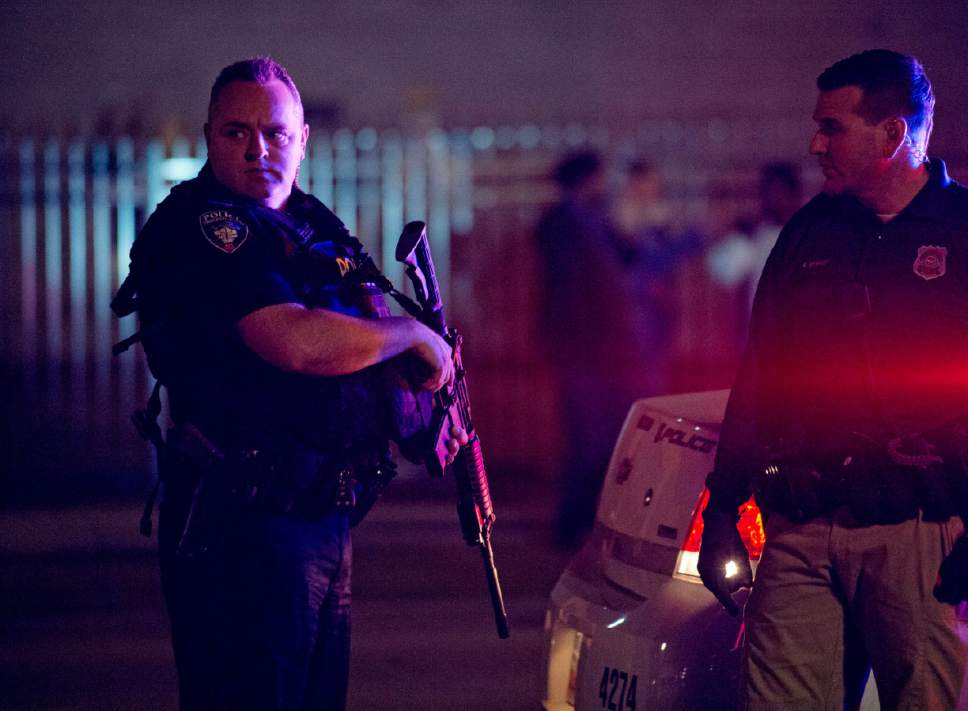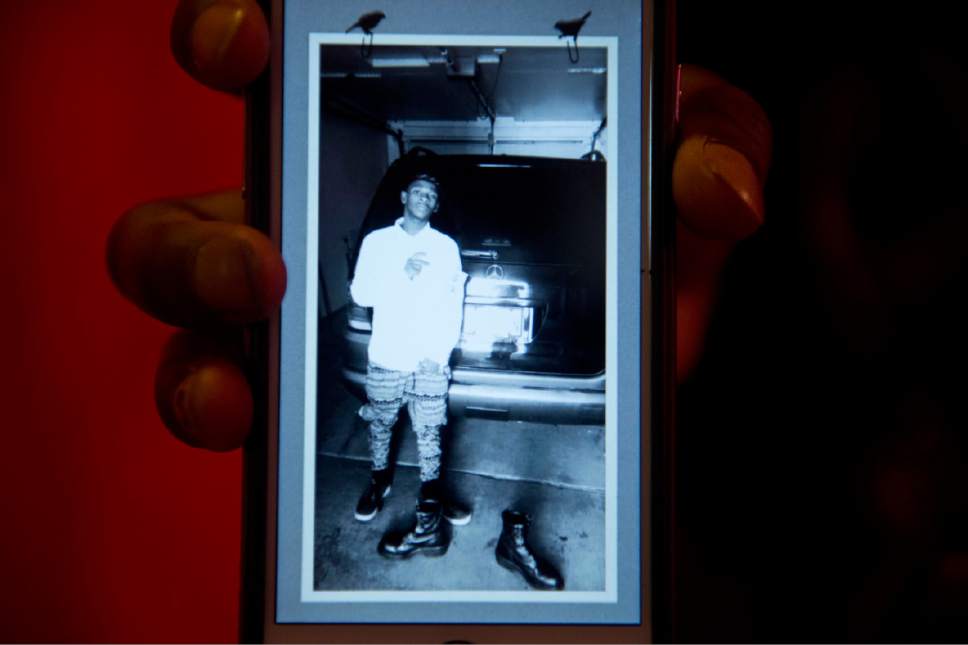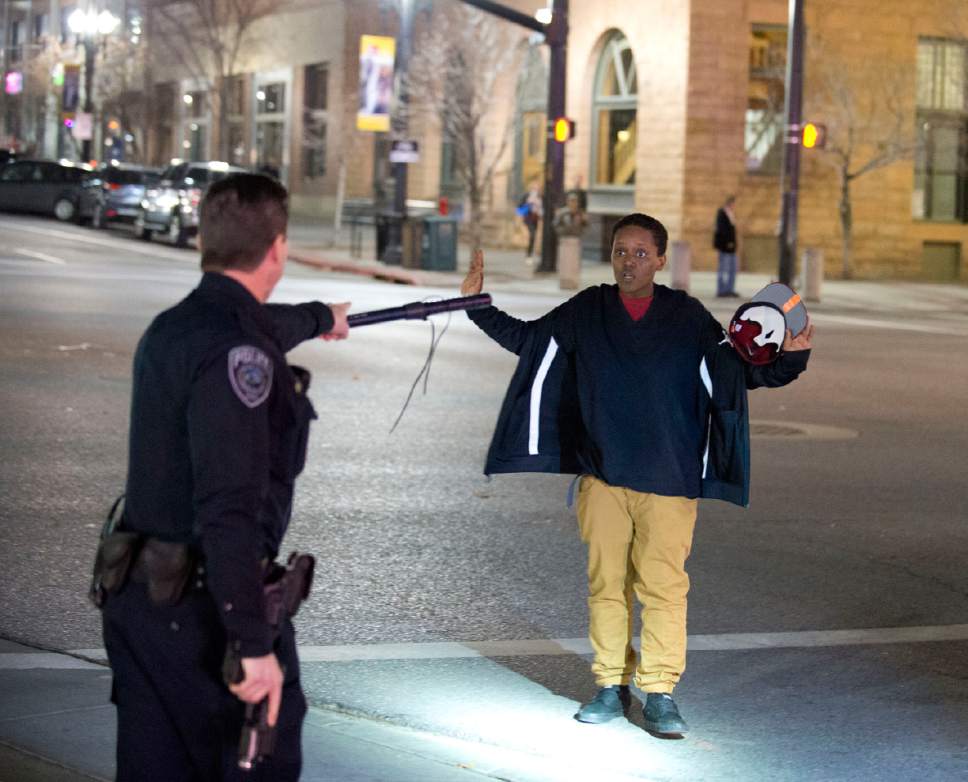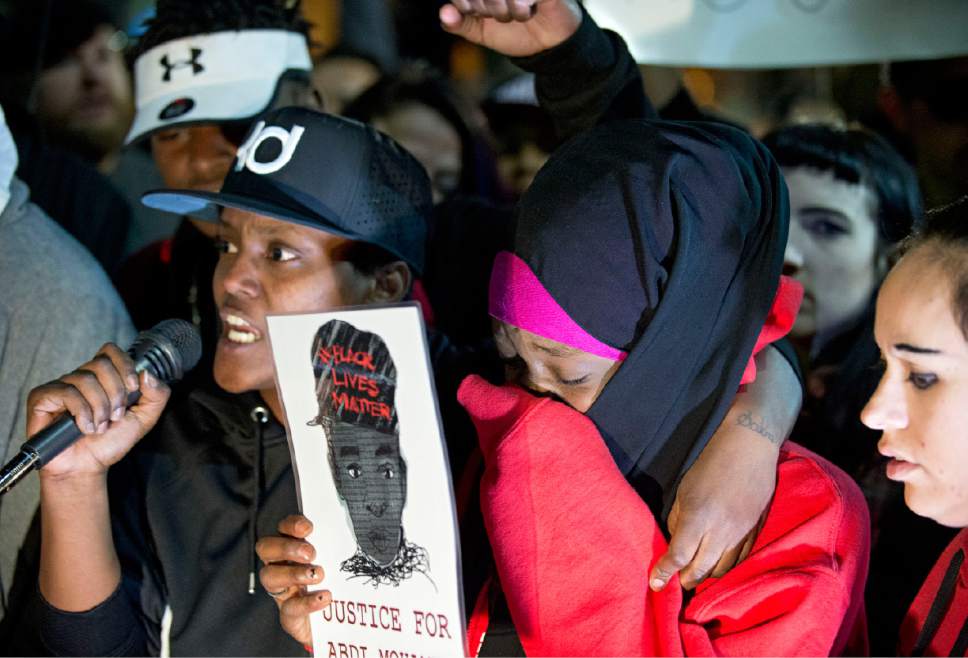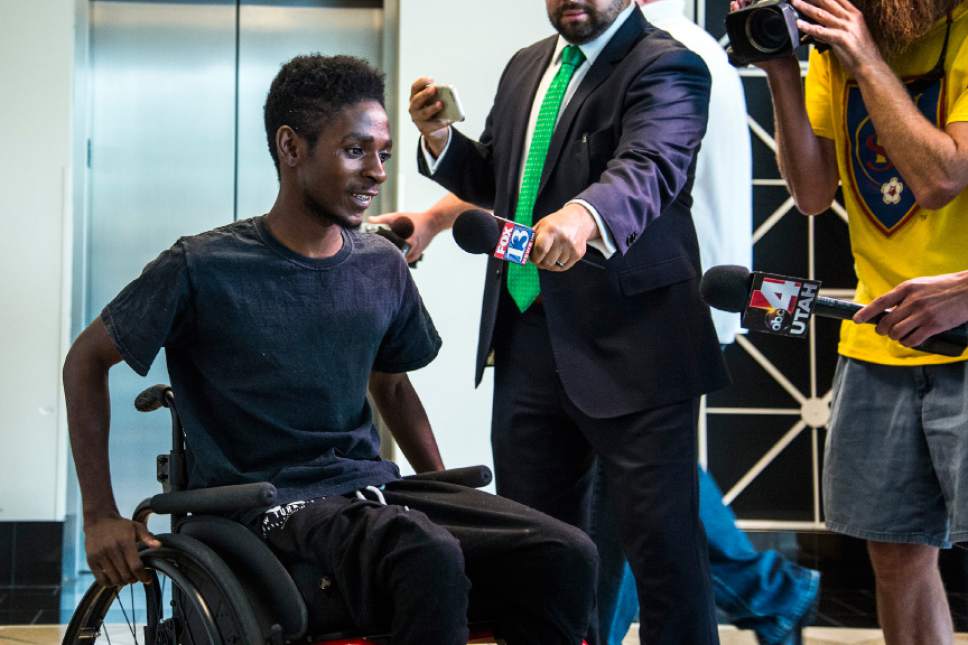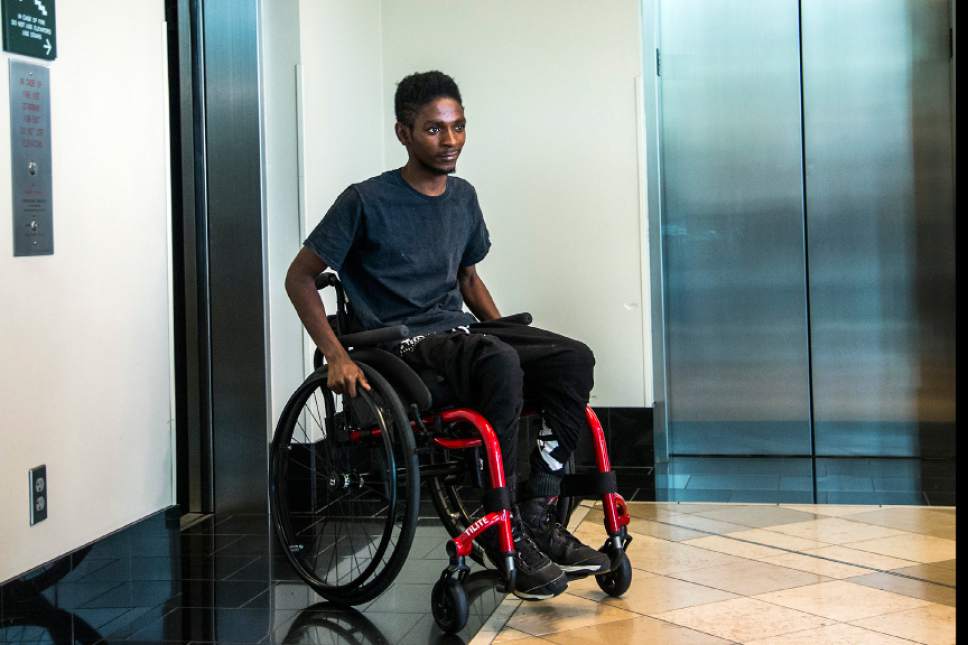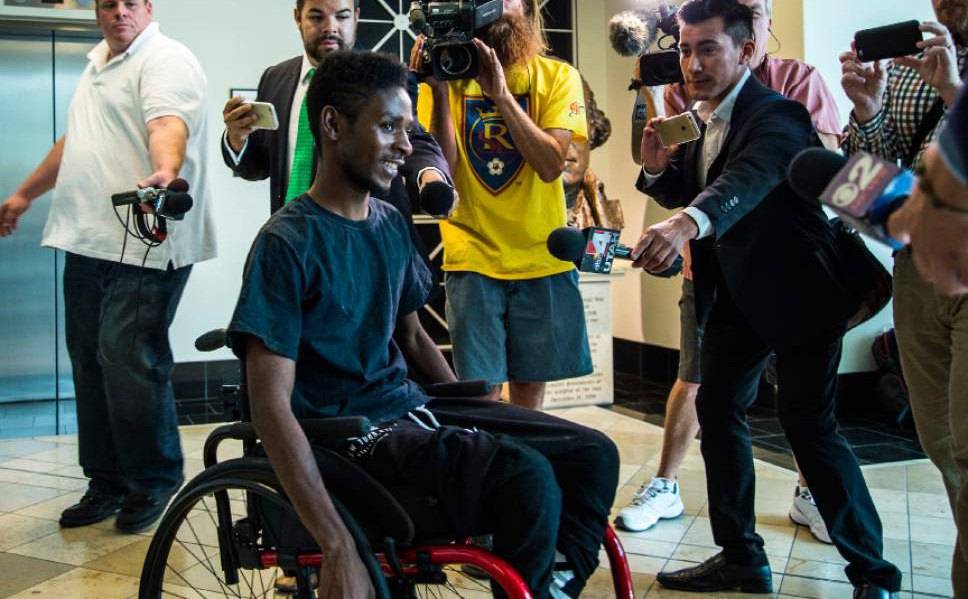This is an archived article that was published on sltrib.com in 2016, and information in the article may be outdated. It is provided only for personal research purposes and may not be reprinted.
The Salt Lake County GRAMA Appeals Board heard arguments Tuesday for whether or not body cam footage showing the police-involved shooting earlier this year that critically injured then-17-year-old Abdullahi "Abdi" Mohamed should be released publicly.
Mohamed, a Somali refugee, was shot four times by Salt Lake City officers Kory Checketts and Jordan Winegar during the Feb. 27 encounter. He survived the shooting after being put in a medically-induced coma and spending weeks in the hospital.
Salt Lake County District Attorney Sim Gill announced in August that his office had determined the officers were justified in their use of force and that the county was filing charges against Mohamed in juvenile court for aggravated robbery, a first-degree felony, and drug possession with intent to distribute, a second-degree felony.
The announcement sparked outrage and protests from some people, who called for Gill and Salt Lake City Mayor Jackie Biskupski to resign.
Last month, the Salt Lake City Police Civilian Review Board issued a report stating that Checketts and Winegar's behavior during the incident was "not within" policy.
Mohamed is accused of assaulting another man, with what later proved to be a hollow metal mop handle, after a dispute about an alleged drug purchase outside a downtown homeless shelter.
It was that alleged assault by Mohamed which prompted Checketts and Winegar to fire at the teen.
But the review board's report indicates the fight appeared to be winding down and there was "no increased urgency" in Mohamed's attack just before the shooting. Nor was there any increased urgency in the alleged victim's response to Mohamed at that point in the confrontation, the report states.
The review board, which watched the body-cam footage captured by Checketts and Winegar, noted that 21 seconds elapsed between when the officers reacted to the confrontation and fired their guns.
In May, the American Civil Liberties Union submitted public records requests to the police department and the district attorney's office for the officer's body cam footage, which were subsequently refused.
Mohamed's case is currently set for a preliminary hearing Jan. 23 in 3rd District Juvenile Court. If the case stays in juvenile court, Mohamed could be incarcerated until he is 21 years old. If the case is moved to adult court, a conviction on the robbery count could result in a prison sentence for up to life.
David Reymann, a Salt Lake City media attorney who is assisting the ACLU with the case before the board at no charge, argued Tuesday that the Government Records Access Management Act mandates the video's release in this situation and that there is no legal justification for keeping the video private, especially after both the Civilian Review Board and DA's office have described so much of the video.
Regardless of whether the video reveals evidence in favor of Mohamed or of the police, Reymann said, the public deserves to see it first-hand so they can hold government officials, like Gill, accountable.
"The whole point of body cameras is so that we can address this crisis that we have between the public that is governed by the police and our peace officers that we give the power to use lethal force," Reymann said, adding that if government bodies are going to make "selective" decisions about when something is released, the police "might as well not be wearing body cameras."
Deputy Salt Lake County District Attorney Darcy Goddard, however, disagreed that public interest in the matter outweighed Mohamed's right to privacy. The video, she said, depicts incriminating evidence of a juvenile, private civilian, and its public release would follow Mohamed for the rest of his life.
Goddard also claimed release of the video could bias prospective witnesses, or taint a jury if the case ends up in adult court.
Goddard argued that Mohamed's attorney should weigh in on whether or not the video should be released, based on the interests of his client, and that a judge should be the person authorizing its release.
"It would not be bad ... for us or for the officers for the videos to be released, but that's not the point," Goddard said. "The point is that in a balancing test it might be bad for somebody else. ... We are making what I understand is a very unpopular argument for an office that cares very deeply about transparency, but we are doing it because we believe very strongly in [Mohamed's] Constitutional rights and his ability to be heard in this process at the appropriate time and from the appropriate decision maker."
The board is required to issue a decision on the appeal within a week, and if it is denied, the ACLU and Reymann may file an appeal to the State Records Committee or the court.
Twitter: @mnoblenews


